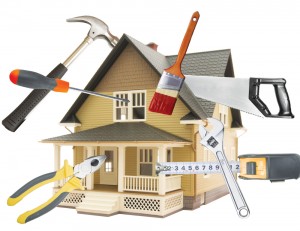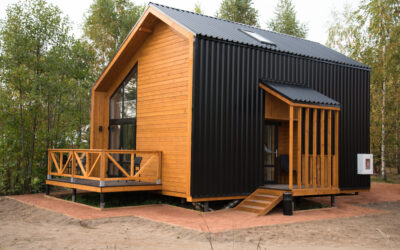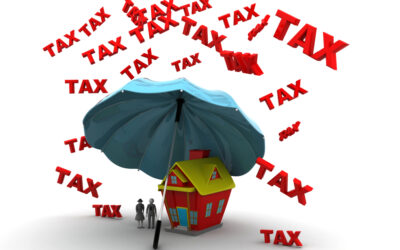What are the tax and investment considerations for a Granny Flat above versus a Tiny Home below? Income Tax Return Reporting - Income Streaming Tiny Homes Tiny home ownership does not have to follow the ownership interest of the underlying property ownership. For...
Top 10 Rental Property Tax Return Mistakes

After 20 years plus of preparing rental property tax returns, I’ve come up with my list of the “Top 10 Rental Property Tax Return Mistakes”.
1. Co-owned properties – Apportioning expenses and income
If you own a rental property with someone else, you must declare rental income and claim expenses according to your legal ownership of the property.
As joint tenants, your legal interest will be an equal split (50/50), any expenses paid by either joint tenant is assumed to be paid on behalf of both equally, regardless of who actually paid the expense.
Tenants, in common, you may have different ownership interests, varying from 1% to 99% ownership, as such you can claim all your direct costs such as loan interest against your % ownership interest.
2. The rental property is genuinely available for rent
Your property must be genuinely available for rent to claim a tax deduction. This means:
- you must be able to show a clear intention to rent the property
- advertising the property so that someone is likely to rent it and set the rent in line with similar properties in the area
- avoiding unreasonable rental conditions, during peak times
- If you stay in the property during the year, ensure there is an apportionment for private use.
- See Airbnb renting part of your home
- See also Holiday Rental Tax Deductions
3. Initial repairs at purchase and capital improvements.
Ongoing repairs that relate directly to wear and tear or other damage that happened as a result of you renting out the property can be claimed in full in the same year you incurred the expense. For example, repairing the hot water system or a damaged roof after a storm can be deducted immediately.

Initial repairs for damage that existed when the property was purchased, such as replacing broken light fittings and repairing damaged floorboards, are not immediately deductible, however, can be treated as capital improvements and depreciated at 2.5% over 40 years, under capital works deduction.
Replacing an entire structure like a roof when only part of it is damaged or renovating a bathroom is classified as an improvement and not immediately deductible. These are building costs that you can claim at 2.5% each year for 40 years from the date of completion.
If you completely replace a damaged item that is detachable from the house and it costs more than $300 (for example, replacing the entire hot water system) the cost must be depreciated over the effective life of the asset,
See the list of effective life for various items in the property.
See also:- Expenses prior to the property being available for rent
4. Claiming Borrowing expenses
If your borrowing expenses are over $100, the deduction is amortised over five years. If they are $100 or less, you can claim the full amount in the same income year you incurred the expense. Borrowing expenses include loan establishment fees, title search fees, mortgage stamp duty, and LMI – mortgage lenders insurance and the like costs of preparing and filing mortgage documents.
See also:- Rental Property Borrowing Expenses Example
5. Purchase costs
You can’t claim any deductions for the costs of buying your property. These include conveyancing fees and stamp duty, building & pest reports. If you sell your property, these costs are then used when working out whether you have made a capital gain or loss on the future sale. The purchase cost form part of the First Element of the cost base for CGT.
6. Interest on your loan
You can claim interest as a deduction if you take out a loan for your rental property. If you use some of the loan money for personal use such as buying a boat or going on a holiday, you can’t claim the interest on that part of the loan. You can only claim the part of the interest that relates to the rental property. If there is a mixed purpose for the loan, it’s a good idea to have a split or sub loan, so any private purchase can be isolated and repaid quicker while leaving the deductible debt to last.
7. Claiming the construction costs
You can claim certain building costs, including extensions, alterations and structural improvements as capital works deductions. As a general rule, you can claim a capital works deduction at 2.5% of the construction cost for 40 years from the date the construction was completed.
Where your property was owned by someone else previously, and they claimed capital works deductions, ask them to provide you with the details so you can correctly calculate the deduction you’re entitled to claim. If you can’t obtain those details from the previous owner, you can use the services of a qualified professional who can estimate previous construction costs. We also provide a depreciation calculator so you can estimate the like depreciation to determine if a quantity surveyor report is worth the effort.
8. Claiming the right portion of your expenses
If your rental property is rented out to family or friends below market rate, you can only claim a deduction for that period up to the amount of rent you received. You can’t claim deductions when your family or friends stay free of charge, or for periods of personal use.
9. Keeping records of income, expenses, buying & selling costs
You must have evidence of your income and expenses so you can claim everything you are entitled to. Capital gains tax may apply when you sell your rental property. So keep records over the period you own the property and for five years from the date you sell the property. See – templates to help keep records.

Rental Property Income & Expenses
Airbnb – Renting Part of your home – How to declare your income and expense
10. Capital gains or losses when selling
When you sell your rental property, you may make either a capital gain or a capital loss. Generally, this is the difference between what it cost you to buy and improve the property, and what you receive when you sell it. Your costs must not include amounts already claimed as a deduction against rental income earned from the property, including depreciation and capital works. If you make a capital gain, you will need to include the gain in your tax return for that income year. If you make a capital loss, you can carry the loss forward and deduct it from capital gains in later years. See the following template as a guide.
CGT Calculator Rental Property Simple
More help

Schedule a meeting – Click a time & place-

We specialise in working with Investors – Property Developers – Trades – Professionals with a Property Focus. The following is some of the ways we can help:-
- Buying, splitting, developing, renovating, holding or selling residential property.
- Working with all professionals, trades and investors focused on the property industry
- Property accountancy – GST, Margin Scheme, BAS, Financial Statements
- Property investment consulting
- State-Based land tax and stamp duty planning.
- Property tax returns specialize in multi properties
- Property tax advice for first-time investors or developers
- Due Diligence on a proposed development or rental property purchase
The ATO has also released a comprehensive rental properties guide for 2019, you can download it here.



